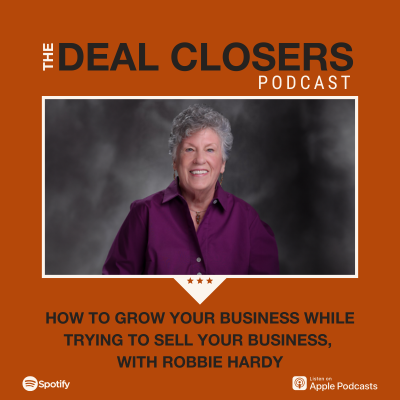
In summary, Robbie Hardy’s podcast outlined the process of expanding your company while preparing for a sale as hard labor that requires both right-hand business development and left-hand sale preparation.
Let us dive into the different strategies you can take to scale your business while preparing your exit plan without sacrificing its operational efficiency.
You cannot go into business with the only goal of eventually selling it because a successful sale is the one where you have maximized its full potential as evidenced by the maximum value potential buyers are willing to pay for. It is good to have an exit strategy and while the sale does not happen yet, focus on growing your business.
To grow your business, these different strategies will help:
Conducting market research will help you identify the needs of your potential customers and what their needs are.
Attracting new customers includes introducing a new product or service that compliments your existing offerings. This can also increase your sales and potentially increase your customer base.
Market leadership also means investing in new products and services. Innovation will be able to help your business stay competitive.
Enhancing your online presence will help you reach your target audience easier and faster. Digital marketing has helped businesses increase engagement through content marketing such as blogs, videos, infographics, etc.
Strategic partnerships will help your business tap into new markets, increase your market share, and create new opportunities.
One way of increasing revenue is increasing customer loyalty by ensuring that you provide excellent customer service at all times by understanding customer pain points and addressing them promptly.
Making sure that your business runs on optimum efficiency means that you are taking away time-consuming tasks that do not add value to your business. This includes automating processes and adapting lean practices.
Cash flow is important to keep a business running. Good financial management and having a clear financial plan will keep the business owners focused on achieving their goals.
Knowing how to leverage these strategies can better position your business for success and establish a strong exit strategy.
Knowing how to grow a business to sell in the future is a key element in becoming a successful entrepreneur that ensures the long-term continuity of the business. There are key elements in play here:
With all these combined, selling a business to potential buyers will make it an attractive investment endeavor.
The key element of how to grow a direct selling business in a retail environment involves implementing strategies that are effective and work to enhance customer service and having a strong marketing plan. These steps to scale your sales company include the following:
When it is time to sell, there is one highly important exercise that you should have already completed beforehand: Due Diligence. This is the key to making sure that the transition goes as smoothly as possible. Underneath this is the connection between running a scalable business and preparing an exit strategy.
Focusing on due diligence means ensuring that all aspects of your business are carefully and thoroughly checked. It also involves working on these different areas:
The process of ownership transitioning is long and demanding. As entrepreneurs, it can affect your personal life and it needs to strike a balance with your work life for the continuity of the business and the people working in it.
Here is how you can strike this balance and it is important that you stick to this:
Achieving a balance during transition is making sure that you give your best in all aspects of your life.
The continuity of small businesses relies heavily on an effective succession plan. This includes creating goals to be achieved within a specific time frame, conducting business valuation, identifying potential successors and their readiness to take on the role, documenting and communicating the transition plan to the stakeholders of the business, and choosing the type of ownership transfer.
With family-owned businesses, it is imperative to involve the other family members in the succession planning process. Some employees fear transitions but with careful planning, it can set the tone for the business to thrive in the future.